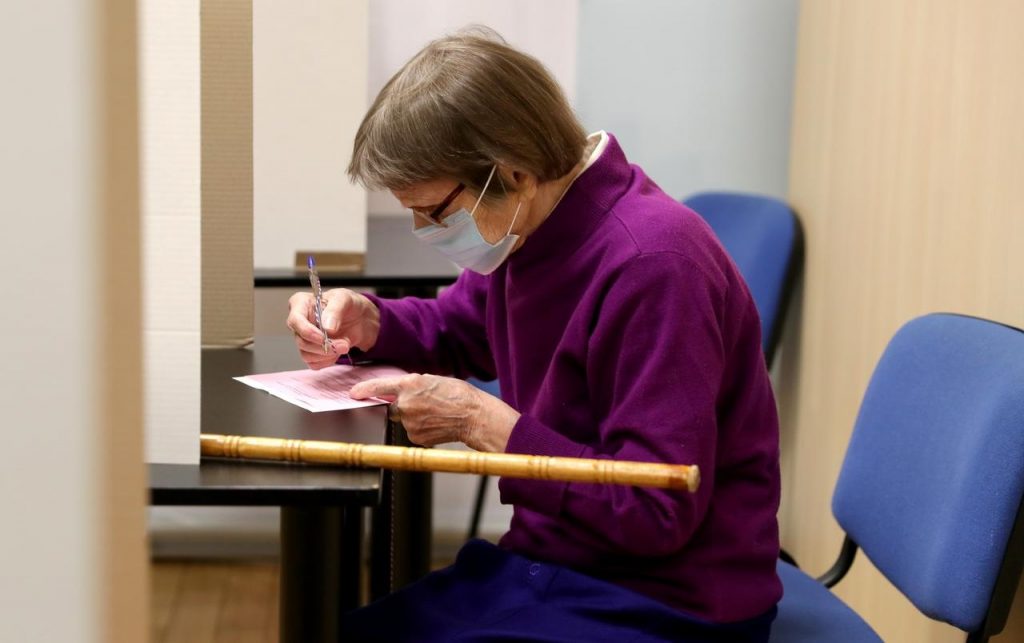Serbia’s ruling conservative party led by President Aleksandar Vucic is set for a landslide win in Sunday’s parliamentary election, results projected by Ipsos and CeSID pollsters showed.
The projection shows the Serbian Progressive Party (SNS) on track to win 62.4% of the votes, while the Socialist party – a junior coalition partner in the outgoing government – is seen coming second with 10.7% of the votes.
The centre-right Serbian Patriotic Alliance led by former water polo player Aleksandar Sapic is seen in third place with 4.1% of the votes.
Polling stations were equipped with face masks and hand sanitisers for the country’s electorate of almost 6.6 million, many of whom were expected to skip voting – partly because of fears of coronavirus infection.
Ipsos and CeSID saw turnout at 48% compared to 56.7% in 2016. The State Election Commission is due to announce preliminary results including turnout later in the evening.
Turnout was hit by a boycott by some opposition parties, who say the vote will not be free or fair owing to Vucic’s grip on the media.
Voters largely back efforts by Vucic’s ruling coalition to push for Serbian membership of the European Union while maintaining strong ties with Russia and China.
But the future government will face increasing EU and U.S. pressure to recognise the independence of Serbia’s former province of Kosovo, a move seen as key for regional stability.
Mladjan Knezevic, a pensioner from Novi Beograd, said he voted for the status quo: “I am for things to stay as they were.”
Vucic himself is not up for re-election, but the opposition parties boycotting the vote accuse him of using his position as president to promote his party.
Serbia, which has a population of 7.2 million, has reported 12,894 confirmed cases of COVID-19 and 261 deaths. It was among the first European countries to start opening its borders on May 22 and all lockdown curbs have since been lifted.
Analysts and pollsters said that health concerns kept some voters at home, especially among higher-risk groups. About 1.2 million people on the electoral list have lived abroad for years and are unlikely to vote.
At a polling station in a school in Belgrade’s Zemun municipality, voters and election officials in face masks said they were working briskly to minimise exposure to the virus.
“Yes, I am concerned about the coronavirus but had to vote … I want to see SPAS in parliament,” Milica, a 26-year-old social worker, said through a blue surgical mask.
Also Read:
Liverpool held by Everton as delayed bid to seal EPL resumes
Tearful Mexican cartel chief threatens government after mother’s detention
Bahrain announces 3 deaths in one day; toll at 63


